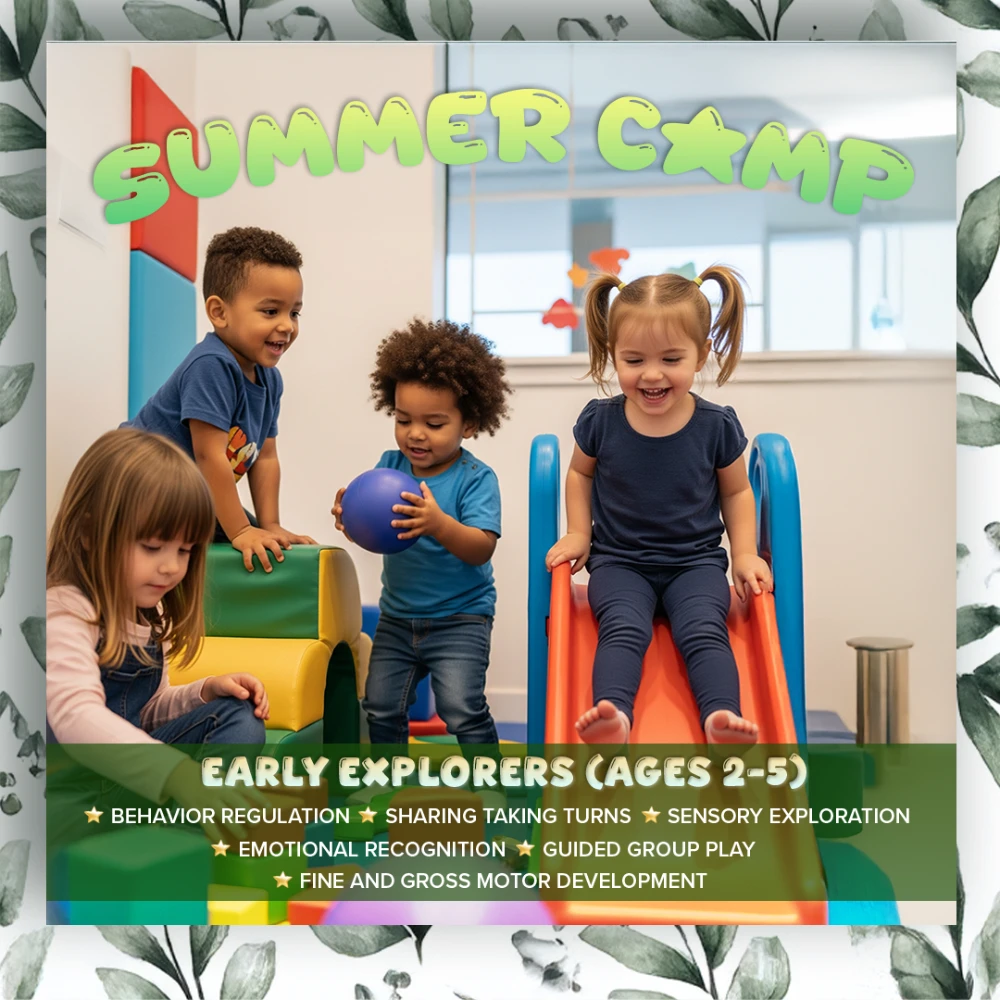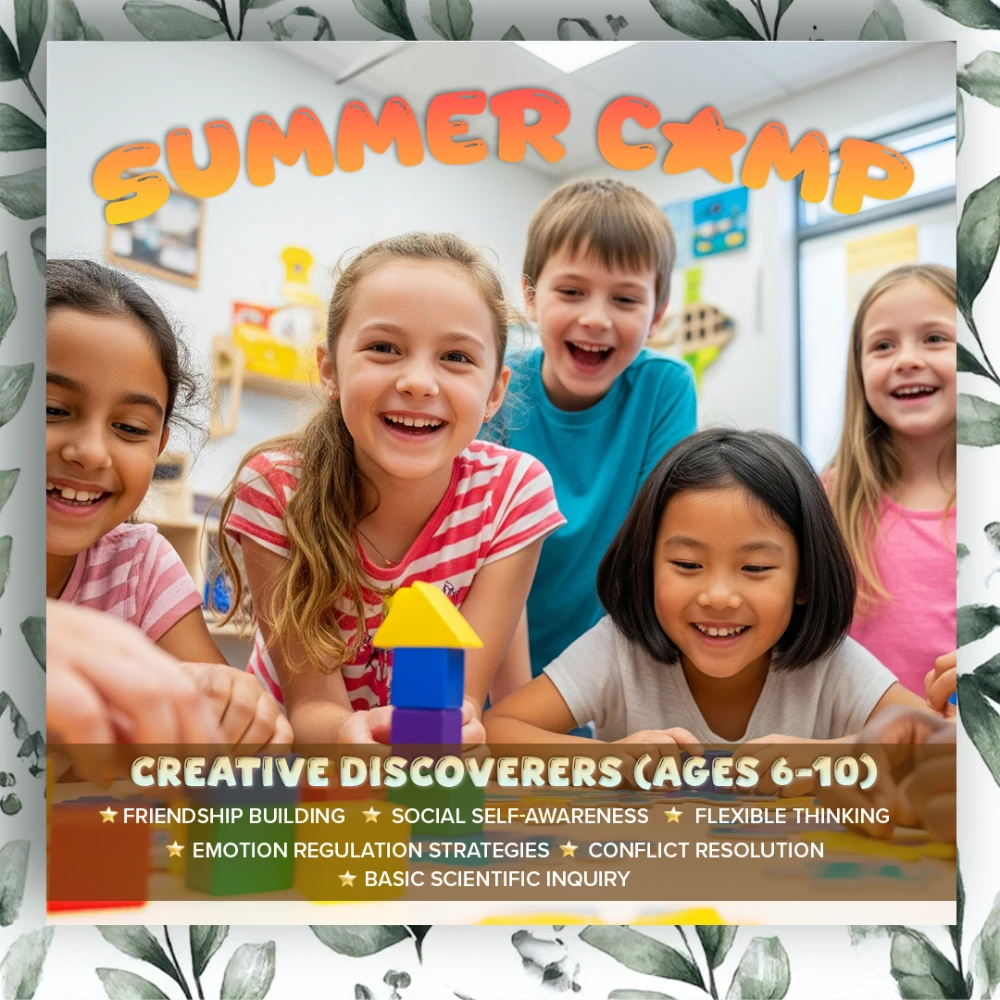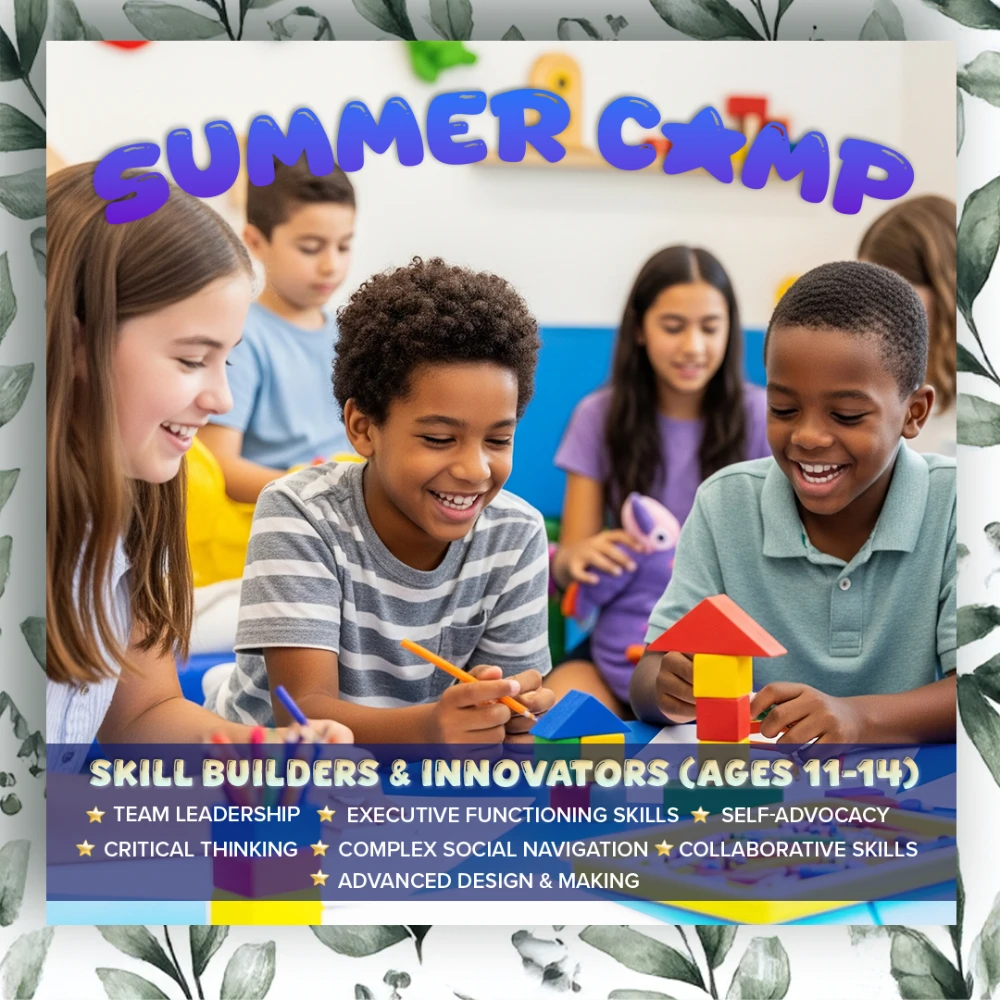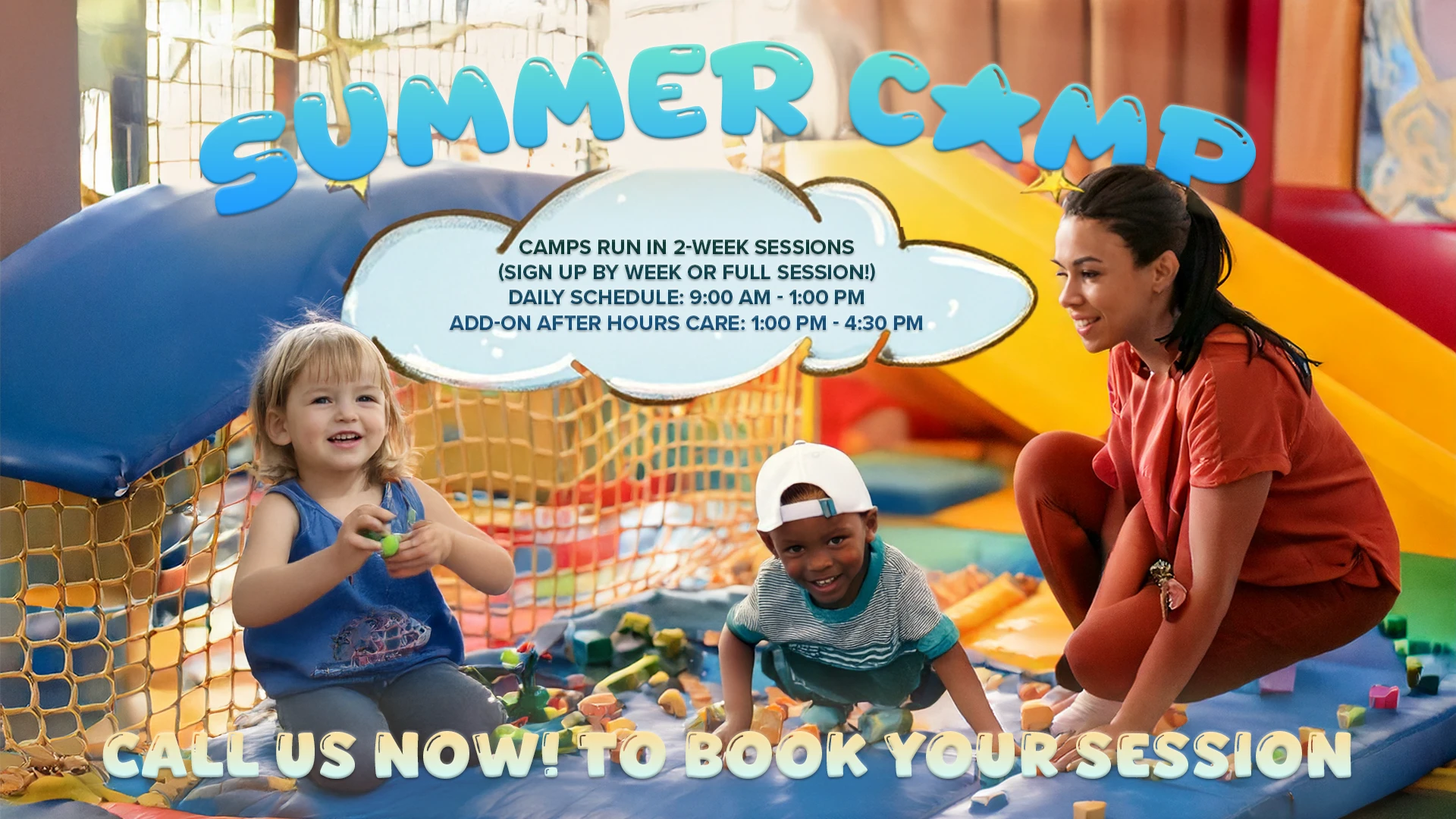
Age Group 1: Early Explorers (Ages 2-5)
This group focuses on foundational skills through sensory engagement, imaginative play, and guided social interactions. The “1:1-1:5 Social Enrichment Track” and “1:2-1:3 Moderate Support” levels would be particularly relevant for this age group.
- Themes Connection: “Animal Explorers,” “Trip Around the Universe” (sensory focus), “Move to the Beat,” “Nature & Discovery” (basic observation).
- Key Skills Worked On:
- Social-Emotional:
- Parallel Play to Cooperative Play: Encouraging children to play alongside and gradually interact with peers (e.g., sharing toys, taking turns with adult prompting).
- Emotional Recognition: Learning to identify basic emotions in themselves and others.
- Following Simple Directions: Responding to 1-2 step instructions in a group setting.
- Group Participation: Engaging in short, structured group activities with consistent adult support.
- Communication:
- Expressive Language: Encouraging verbal and non-verbal communication of needs and wants.
- Vocabulary Building: Expanding words related to camp themes (e.g., animal names, sounds, space objects).
- Active Listening: Practicing listening to stories or simple instructions.
- Cognitive & Motor:
- Sensory Exploration: Engaging with different textures, sounds, and visual stimuli through nature walks, art activities, or themed sensory bins.
- Fine Motor Development: Activities like drawing, manipulating playdough, building with large blocks, and simple crafting.
- Gross Motor Skills: Participating in movement-based activities like dancing, running, and jumping, fostering body awareness and coordination.
- Social-Emotional:
Cause & Effect: Simple problem-solving through play (e.g., what happens when I push this button?).

Age Group 2: Creative Discoverers (Ages 6-10)
This group builds on early skills, focusing on developing cooperative play, problem-solving, and a deeper understanding of themes, with increasing independence. All support levels would be available based on individual needs.
- Themes Connection: “Animal Explorers” (deeper learning), “Trip Around the Universe” (basic science), “Move to the Beat” (rhythm, simple choreography), “Nature & Discovery” (observation, simple experiments), “Role-play Round Up” (social narratives), “Mini Makers Lab” (introduction to building).
- Key Skills Worked On:
- Social-Emotional:
- Cooperative Play & Teamwork: Actively participating in group games and collaborative projects.
- Social Cue Recognition: Beginning to understand non-verbal cues and social expectations in different settings.
- Emotion Regulation Strategies: Learning and practicing strategies to manage frustration, excitement, or anxiety with guidance.
- Empathy Development: Understanding different perspectives through discussions and role-play.
- Communication:
- Clear Expression of Ideas: Articulating thoughts and experiences related to activities.
- Asking and Answering Questions: Engaging in more complex conversations and seeking clarification.
- Storytelling & Role-Playing: Developing narratives and participating in structured dramatic play scenarios.
- Cognitive & Motor:
- Basic Scientific Inquiry: Observing, predicting, and exploring concepts through hands-on experiments (e.g., planting seeds, simple physics).
- Creative Problem-Solving: Working through challenges in building, art, or social scenarios.
- Fine Motor Refinement: Engaging in more intricate crafts, drawing details, and using various tools in the Mini Makers Lab.
- Following Multi-Step Directions: Completing tasks with several sequential steps.
- Social-Emotional:
Independence: Beginning to self-initiate tasks and manage personal belongings.

Age Group 3: Skill Builders & Innovators (Ages 11-14)
This group focuses on refining complex social skills, developing abstract thinking, leadership, and engaging in more intricate project-based learning. All support levels would be available, with an emphasis on fostering emerging independence and self-advocacy.
- Themes Connection: All themes explored with greater depth and complexity: “Trip Around the Universe” (advanced concepts), “Role-play Round Up” (complex social scenarios), “Mini Makers Lab” (advanced projects, design thinking), “Nature & Discovery” (ecological concepts).
- Key Skills Worked On:
- Social-Emotional:
- Complex Social Navigation: Understanding nuanced social dynamics and group hierarchies.
- Leadership & Peer Support: Taking on mentor roles for younger campers or leading components of group projects.
- Advanced Emotion Regulation: Utilizing a broader range of coping strategies independently.
- Conflict Resolution: Participating in facilitated discussions to resolve disagreements.
- Identity Exploration: Opportunities to explore personal interests and strengths within a supportive community.
- Communication:
- Collaborative Communication: Effectively working in teams to achieve shared goals, including active listening and constructive feedback.
- Presenting Ideas: Articulating and sharing project outcomes or insights with a small group.
- Nuance in Communication: Understanding implied meanings, sarcasm, and other complex communication forms.
- Cognitive & Practical:
- Project Planning & Execution: Contributing to the design, planning, and completion of more elaborate projects in the Mini Makers Lab.
- Critical Thinking: Analyzing information, evaluating different approaches, and problem-solving complex challenges.
- Abstract Thinking: Engaging in discussions about broader concepts related to themes (e.g., ethical considerations in space exploration, environmental impact).
- Self-Advocacy: Learning to communicate their needs, preferences, and boundaries effectively.
- Social-Emotional:
Time Management: Developing awareness of time and planning for project completion.

